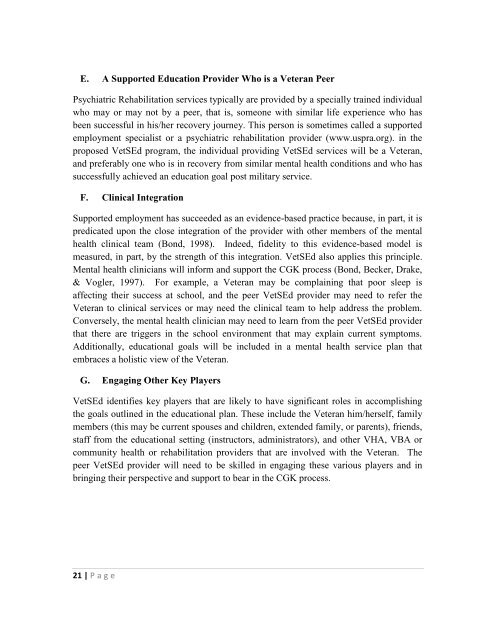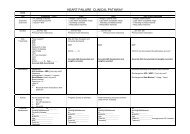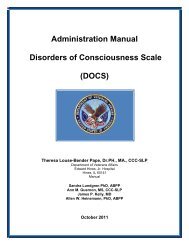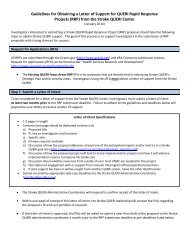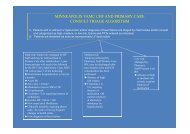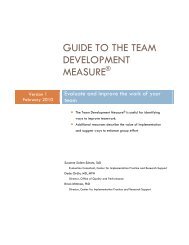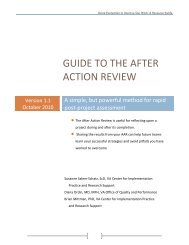The Veteran Supported Education Service Treatment Manual: VetSEd
The Veteran Supported Education Service Treatment Manual: VetSEd
The Veteran Supported Education Service Treatment Manual: VetSEd
You also want an ePaper? Increase the reach of your titles
YUMPU automatically turns print PDFs into web optimized ePapers that Google loves.
E. A <strong>Supported</strong> <strong>Education</strong> Provider Who is a <strong>Veteran</strong> Peer<br />
Psychiatric Rehabilitation services typically are provided by a specially trained individual<br />
who may or may not by a peer, that is, someone with similar life experience who has<br />
been successful in his/her recovery journey. This person is sometimes called a supported<br />
employment specialist or a psychiatric rehabilitation provider (www.uspra.org). in the<br />
proposed <strong>VetSEd</strong> program, the individual providing <strong>VetSEd</strong> services will be a <strong>Veteran</strong>,<br />
and preferably one who is in recovery from similar mental health conditions and who has<br />
successfully achieved an education goal post military service.<br />
F. Clinical Integration<br />
<strong>Supported</strong> employment has succeeded as an evidence-based practice because, in part, it is<br />
predicated upon the close integration of the provider with other members of the mental<br />
health clinical team (Bond, 1998). Indeed, fidelity to this evidence-based model is<br />
measured, in part, by the strength of this integration. <strong>VetSEd</strong> also applies this principle.<br />
Mental health clinicians will inform and support the CGK process (Bond, Becker, Drake,<br />
& Vogler, 1997). For example, a <strong>Veteran</strong> may be complaining that poor sleep is<br />
affecting their success at school, and the peer <strong>VetSEd</strong> provider may need to refer the<br />
<strong>Veteran</strong> to clinical services or may need the clinical team to help address the problem.<br />
Conversely, the mental health clinician may need to learn from the peer <strong>VetSEd</strong> provider<br />
that there are triggers in the school environment that may explain current symptoms.<br />
Additionally, educational goals will be included in a mental health service plan that<br />
embraces a holistic view of the <strong>Veteran</strong>.<br />
G. Engaging Other Key Players<br />
<strong>VetSEd</strong> identifies key players that are likely to have significant roles in accomplishing<br />
the goals outlined in the educational plan. <strong>The</strong>se include the <strong>Veteran</strong> him/herself, family<br />
members (this may be current spouses and children, extended family, or parents), friends,<br />
staff from the educational setting (instructors, administrators), and other VHA, VBA or<br />
community health or rehabilitation providers that are involved with the <strong>Veteran</strong>. <strong>The</strong><br />
peer <strong>VetSEd</strong> provider will need to be skilled in engaging these various players and in<br />
bringing their perspective and support to bear in the CGK process.<br />
21 | P a g e


